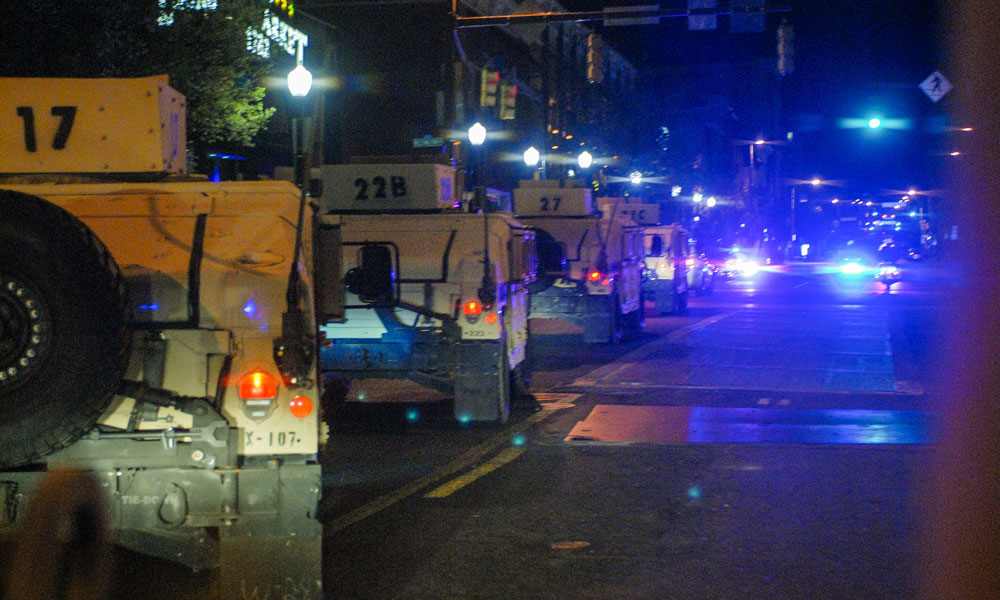
A Behind-the-Scenes Look At Meetings in Baltimore Last Week
What happens when a state of emergency is declared in the city where you’re hosting a big event soon? Two meeting planners share their experiences.
It’s something no meeting planner ever wants to hear: The city where your next big event is taking place in just a few days is under a state of emergency due to protests, looting, and riots.
This was the case in Baltimore last week as protests broke out over the death of Freddie Gray, who died of spinal injuries while in police custody. Several events and meetings were canceled due to security concerns. But some events carried on, all the while keeping an eye on the potential for safety risks and learning some lessons along the way.
“It actually started to happen relatively quickly,” Scott Wolters, director of the Food Safety Summit, which took place at the Baltimore Convention Center April 28-30, said of the protests that broke out on Monday night following Freddie Gray’s funeral. “I was watching on TV, and it was amazing how quickly things turned.”
No stranger to crisis—Wolters organized a tradeshow that was scheduled for Sept. 12, 2001, at the Javits Center in New York City—he described that night as stressful and intense as the situation escalated.
Most of the unrest was north of the Inner Harbor area, where the convention center is located, but Wolters and his staff wanted to make sure that everyone attending the conference would be safe should the show go on. They conferred with convention center staff as well as the city’s convention and visitors bureau and the Baltimore police and ultimately decided it was safe to continue with the Summit.
“The biggest threat that we had was a lot of misinformation, which is typical in a crisis situation like this,” Wolters said. “The hotel staff was not informed fully of what was going on. They were saying things that weren’t true, and we were dealing with news outlets that typically have a lot of pictures but not a lot of information, and that was fueling the fire.”
To help ensure attendees had the correct information about the situation, Wolters sent a personal email to the 1,600 people who had registered for the event—that included attendees, speakers, and exhibitors—and personally answered any questions they had. Most questions revolved around security, which was increased by both event staff and the convention center.
In addition to delivering clear, concise information to all those involved with the event, Wolters credited cooperative relationships with vendors and partners, including the venue, and keeping a cool head on the part of event staff for the Summit’s success in light of the crisis situation.
“My staff was amazing,” Wolters said. “They didn’t lose their head. They stayed focused. They didn’t take the bait and get all excited. When you respond in a calm, cool demeanor, that tends to mitigate a lot of these situations.”
‘Business as Usual, Plus Better’
Joyce Paschall, CAE, director, meetings and events at the American College of Occupational and Environmental Medicine, was gearing up for the American Occupational Health Conference (AOHC) beginning May 3 in Baltimore when the riots broke out last week.
“The Monday evening, when things really boiled over, we were, of course, quite concerned,” she said.
Once landing in Baltimore on Tuesday and assessing the situation firsthand, Paschall and her staff determined it was safe to continue with the event. They began to communicate that to attendees as well as provide them with updates on the evolving situation, though not too frequently.
“We gave our members and attendees information that we knew to be factual,” Paschall said. “We didn’t sugarcoat that there weren’t things going on, but we certainly didn’t give them any reason to think that we were uncertain. … Our folks have told us that they appreciated that communication, but not over-communication, because if you do it too often, it feels like it’s a changing story.”
Despite the unrest going on in the city, attendance at this year’s AOHC was largely unaffected, and staff at both the meeting venue and Baltimore convention and visitors bureau were accommodating and appreciative.
“It was kind of just a normal conference,” said Paschall, who added that there was even an added bit of camaraderie among those who decided to come. “It was business as usual, plus better.”
Has your association ever dealt with a crisis situation during one of its events? Please share your experience in the comments.
(Maryland National Guard/Flickr)






Comments